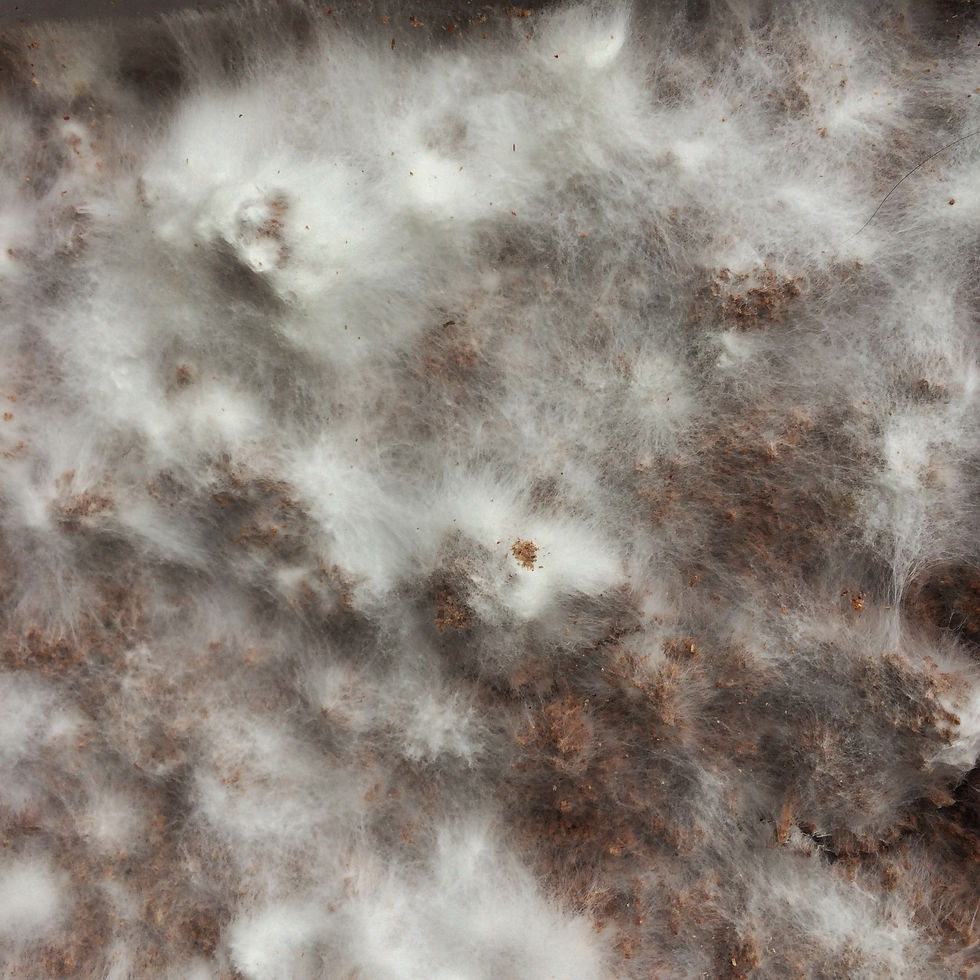



Engaging Mycelium:
Explorations of a Cultivated Architecture
Guelph, ON, Canada
Investigation
Engaging Mycelium presents a material investigation into understanding the architectural value of a biologically grown, fungal-based fabrication method. By utilizing the natural growth patterns of fungal mycelium, this matter-generating process challenges traditional means of production towards a low input, low impact material practice– a cyclical metabolism where materials can go back to the earth’s carbon cycle at the end of their useful life.
Over the last decade, a handful of designers have displayed great interest in biofabricating with mycelium– the vegetative structure of fungi. Despite gaining recognition, this evolving material practice lacks development within design literature. With no standard accepted protocols yet to follow, this research initiates an intimate dialogue with fungi through tactile, process-based, material-driven experimentation. At the intersection of architecture and biology, this work is actively guided by a subtle organism, therefore inherently alternates scales from nano to macro. The research aims to: offer insight into designing with fungi as living collaborators, learn the characteristics of the material, and recognize the challenges and potentialities of material implementation for the purpose of architecture.
Experimentation is conducted in multiple stages, with every step contributing heavily to the next. The first is the initial interaction with fungi: testing a variety of substrates and growth techniques for basic form creation and evaluation. The next phase focuses on optimizing a growth method to achieve an accurate representation of the material’s technical and experiential qualities. Subsequently, a series of artifacts are grown as a means of developing technique and material learning through active prototyping. Additionally, the notion of scale is explored through a dimensional study, with the objective of determining a correlation between the growth time, drying time, and size of specimens. Samples grown for this study are subjected to compression testing to better understand the technical properties of the material, and to further define the challenges and opportunities of a fungal-based future in design. The intention of this multi-stage material investigation is knowledge acquisition through an instinctual and tactile engagement, by cultivating artifacts and material experiences.